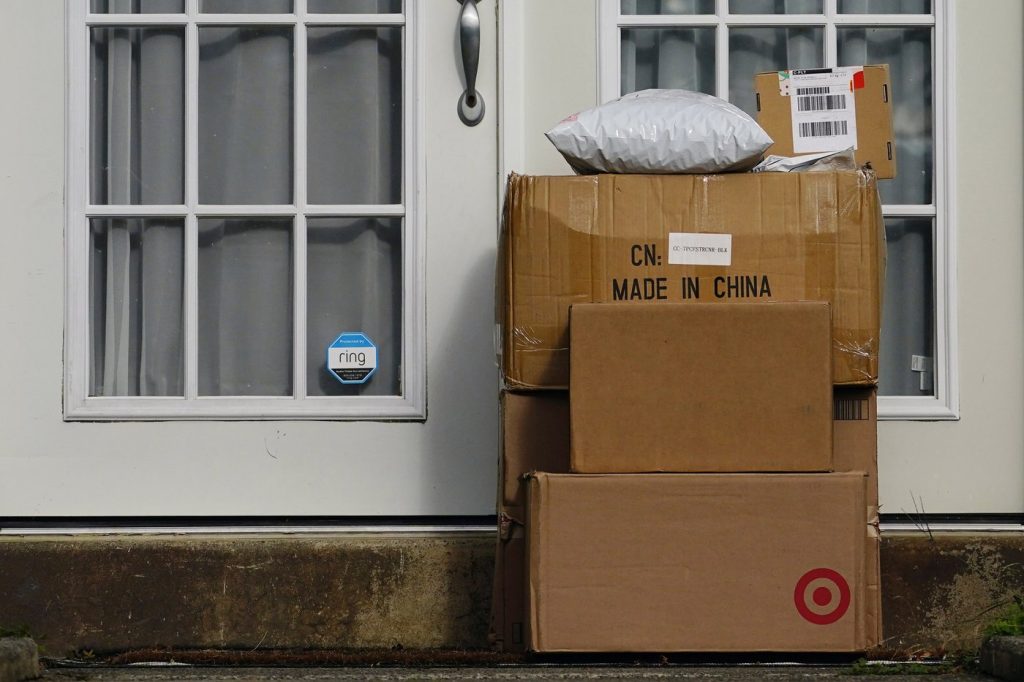HONG KONG (AP) The Hong Kong government announced on Friday that it will file a complaint with the World Trade Organization (WTO) regarding new tariffs imposed by the United States on products from the southern Chinese city. This decision follows the U.S. introducing an additional 10% tariff on certain Chinese goods and revoking a customs exception that previously allowed small-value parcels to enter the U.S. tax-free.
In reaction to these measures, China has already made a request for WTO dispute consultations with the U.S., and it has also announced retaliatory tariffs on select American imports, alongside launching an antitrust investigation into Google. The Hong Kong government criticized the U.S. actions, labeling them as "grossly inconsistent with the relevant WTO rules." It emphasized that the U.S. had disregarded Hong Kong's status as a separate customs territory and urged for an immediate rectification of these measures.
This isn't the first instance where Hong Kong has engaged in a trade dispute with the U.S. through the WTO. As a former British colony returned to Chinese rule in 1997, Hong Kong functions as a semi-autonomous region with distinct economic and social systems compared to mainland China. Notably, during the presidency of Donald Trump, Hong Kong lodged complaints about the U.S. mandate requiring city-produced exports to be labeled as "Made in China." In 2022, WTO arbitrators determined that the U.S. was violating international norms by enforcing such labeling.
The WTO confirmed that it has received China's request for consultations regarding the newly imposed tariffs on Chinese goods. This sets off a 60-day window for the involved parties to resolve their disagreements. Should this period pass without resolution, the matter can be escalated to a three-judge panel at the Geneva-based trade organization.
Despite the commencement of these consultations, it is important to note that the WTO's dispute resolution processes have faced significant hurdles in recent years, as various U.S. administrations have obstructed the appointment of judges to its appeals court. Concurrently, Hong Kong's postal service announced late Thursday that it would maintain a suspension on shipping any goods to the United States until further notice. This decision is made despite the U.S. postal service's recent reversal of its ban on parcels from Hong Kong and other parts of China.
The Hong Kong government explained that Hongkong Post is currently in discussions with the U.S. postal administration, yet further clarifications are still awaited regarding certain matters, especially concerning the tariffs. They reiterated their firm disapproval of the additional duties imposed on Hong Kong products, insisting that the U.S. take "urgent actions to rectify its wrongdoing."
In a related development, the U.S. postal service had declared earlier in the week that it would no longer accept parcels from China, including those from Hong Kong; however, it reversed this decision within a day without providing a reason. The postal service stated that it would cooperate with Customs and Border Protection to implement a new collection process for the tariffs to avoid delivery disruptions, creating confusion among residents in Hong Kong looking to send packages to the U.S.
The shifting regulations have raised concerns over the potential impact on popular online shopping platforms like Shein and Temu. These platforms are favored among younger U.S. consumers for providing inexpensive clothing and other products, typically shipped directly from China. Efficient and cost-effective postal services have been crucial for these companies to maintain low prices, particularly due to the previous "de minimis" exemption, which allowed tax-free shipments valued below $800.
According to the U.S. Census Bureau, the U.S. imported approximately $427 billion worth of goods from China in 2023, with consumer electronics, including cellphones, computers, and accessories, comprising the largest import categories.










